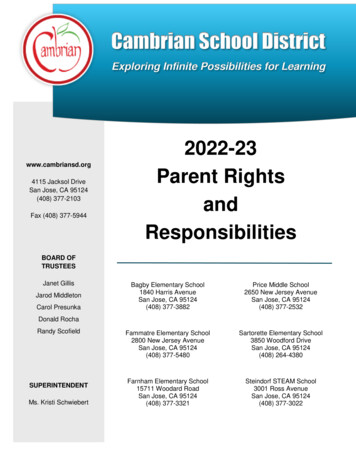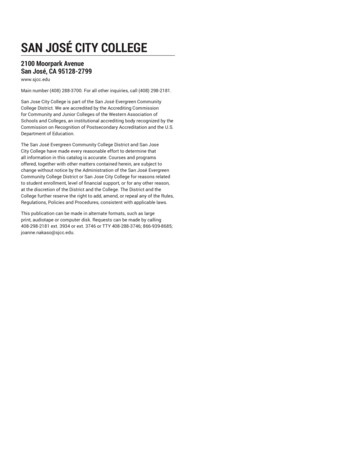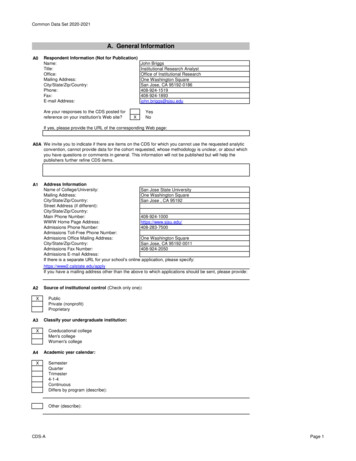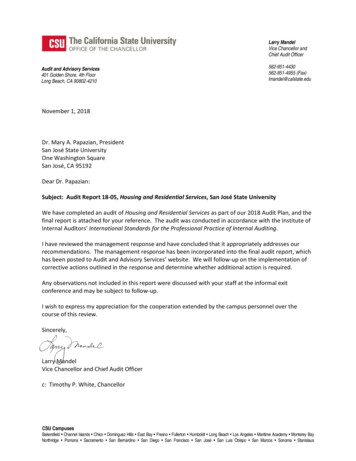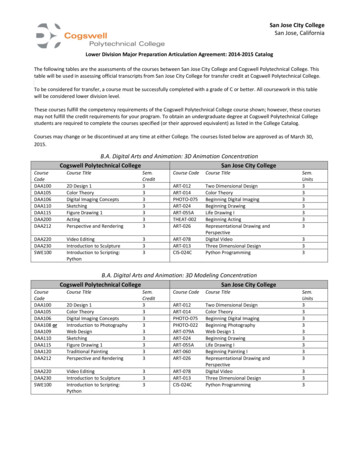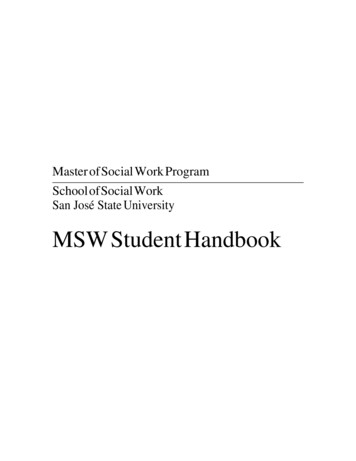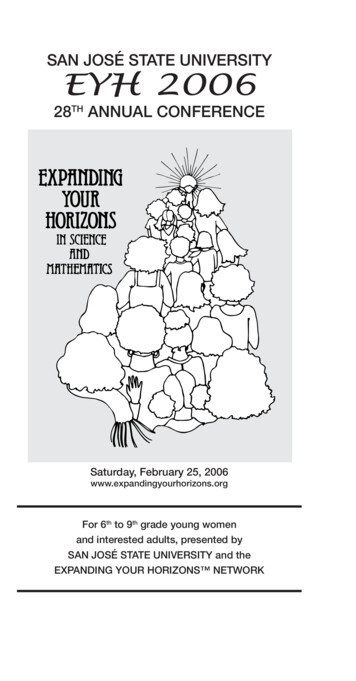
Transcription
.orgiities of Abya Yala:The Principlesof Democracyof Citizens (ATTAC):Iipftaa. org/he word democracy comes from two Greek words: demos people andkratos rule. Therefore. the word means "rule by the people," sometimescalled "popular sovereigny." and can refer to direct, participatory. andrepresentative forms ofrule bp the people. Today the word has a positive meaning throughout most of the world-somuch so that. to connect themselveswith t h s positive image, even some political systems with little or n o rule by thepeople are called democratic.T h e following analysis uses a simple model of the key elements of democracy as it exists today:TI. Citizen involvement in decision malung2. A system of representation3. The rule of law4. -4n electoral system-majorir)rule5. Some degree of equality among citizens6. Some degree of libern; o r freedom granted to or retained by citizens7 . Education
60PARTIII DEMOCRACYThe classic response to elitist theories is to argue that (1) efficiency is not asimportant as the positive influence of participation o n the citizen and (2) theaverage citizen is probably capable of understanding most issues. T h e elitist theorists say, in efi-ecc, that classicalrepresentative democracy does not-evencannot-work in the modern world. Their opponents argue that a truly informedcitizenry is even more important than in the past and that representative democracy can work even though new problems make it more difficult to achieve.But they also argue that people need to be actively encouraged to participateand given the means of inforrmng themselves regarding the issues.PluralismCloselv related to the elitist view is pluralism. in which the political system iscomposed of interest groups competing for power with none strong enough todominate. As long as competition exists and is fair. n o single interest can gaintoo much power; one interest will always be held in check by the other interests. Advocates contend that pluralism is the best system for a representativedemocracy because pluralism protects citizens from too great a centralization ofpower and allows all the diverse interests within a society to be expressed. Inthe United States today, pluralism connects neatly to the growth ofinterest inn ulticulturalism\structuring society around competing and cooperating cultures). But it is important to noce that pluralism is about distribution of powerand multicultur&sm is about toleration of difference.Most modern societies are pluralistic in that they are composed of a varietyof groups based on characteristics such as wealth, race, gender. ethnic or nationalorigin, profession, and religion. Defenders of p l u r d s m argue that this diversityshould be recognized and procected. Thus pluralism includes both a positiveawareness of the group basis of most contemporary societies and the belief thatdemocracy needs to incorporate that awareness. Pluralists in the United Statesassert that plurahsm supplements the system of checks and balances enshrinedin the U.S. Constitution with additional checks o n power. Outside the UnitedStates: pluralists argue that competition among groups is often the primarymeans o f limiting centralized power.Critics of pluralism make two major points. First, according to the antipluralists. the only thing of interest to the competing elites is staying in office; all valuesare secondan; to this overriding goal. Thus the suggestion that pluralism protectsfieedom is false. Pluralism is a protection for rieedom, or any other value, only aslong as that value is to the policical benefit o f t h e competing groups. Second,antipluralists note that the supposedly competing groups cooperate to maintainthe present system and their positions of power within it. As a result pluralism andthe groups that compete w l t h n it are obstacles to change, particularly in trying toavoid the emergence of new groups that might successfilly compete for power.Corporatism
CHAPTER 31) efficiency is not ase citlzen and (2) the;sues. T h e elit-ist theicy does not-eventhat a truly informed:presentative democdifficult to achieve.iraged to participateissues.le political system isne strong enough togle interest can gain;by the other interfor a represent-at-lveat a centralization ofto be expressed. In;rowth of interest innd cooperating culistribution o f power m p o s e dof a variety?r, ethnic or nationalue that t h s diversin.ldes both a positive:s and the belief thatin the United States; balances enshrinedOutside the United; often the primaryLng to the antlplural gin ofice: all valueslat pluralism protectsother value, only asng groups. Second.loperate to maintalnI result plurahsm and-titularly in trying tolmpete for power.THE PRINCIPLES OF DEMOCRACYbureaucracies. Interest groups do not merely consult with government but arefully integrated int-o the process of policy malung and implementation. As onewriter put it, corporat-ism means the "negotiation of policy between state agencles and int-erest- orpnisations arising from the divlslon of labour in society,where policy agreement-s are implemented through the collaboration of theinterest organisatlons and their willingness and ability t-o.secure the complianceof their members."'T h e theory ofcorporatism has had a great impact on how interest organizations percelve their relations wlth one another and with government. Althoughcorporatism has not significantly reduced competition among interest groups, l thas provided the theoretical basis for their talung a more active role in actuallydeveloping policy in cooperation wit-h government bureaucracies.Crltics of corporatlsm argue that- I[ simply justifies greater power on the partof unelected people. that the similarity of t-he concept In fascism 1s n o accident,and that corporatism explicitly denies the power of citizens to control theirown lives In a democracy Critics of elitism. pluralls n.and corporatism oftensuggest that more, not less. direct participation on the part of the citizens is thebest approach to democrac):Participatory DemocracyThe most drect- challenge to the previous approaches is found among those whosay that the low level of citizen involvement is a problem that should not b erationalized away but solved. Advocates of pardcipator)- democracy see elitism.pluralism. and corporatlsm as disregarding the most fundamental principle ofdemocrac): and they contend that shfting power away il-om elected officials tocitizens can save the principle. In other words. they propose movlng the systemawav froin representative democracy in the direct-ion of d r e c t democracy.'T h e participatory democrat argues that laws they did not help make or particlpate In malung should not bind individuals. In other words. the individualall lndivlduals-must be consulted In the making of laws that will affect them.If they are not consulted. the laws should be considered invalid.In addlrion to asserting that more participatory democracy can work.advocates of this position contend that onlv with greater part cipationcan theother principles of democracy be fulfilled. According to this argument, peoplewill never be politically equal o r free unless they become active and involvedcitizens committed to making the syst-em work by r n a h n g representat-ivedemocracy more like direct democracy. At the same rime, contemporarydefenders of participatory democracy do nor oppose representauon; they justbelieve that voters should keep their representatives on a short-er leash.Opponents of parriclpaton democracy argue that t simply goes too far and,as a result, 1s mpracrlcal.Ir would be fine lf l t was possible, bur. t cannot be--' Wvn Granr, nrroducnonto T i e Polt ,r.zi Eicmzclrny giCorporaium, ed:s prefer to call it tot h itn t e r p e trrrnnqncWvn Grant (LondonMacrmllan, 1985). 3-1' See, for example. Caroie Parrrn n.Parrropar onand Dernocrarii.--Theory (Cambridge
62PART IllDEMOCRACYachieved in our complex world. Also. the fact that many choose not to voteraises questions about any participatorv theory These critics assert that contemporary political decisions require both expertise and time not available to theaverage citizen. As a result. the -say. a system of representative democracy isnecessary.REPRESENTATIONIf l r e c t participation is difficult to acheve or not a good idea, then it is necessary t-o develop a way for people to participate indirectly. The primary meanshas been through representatives. or people chosen bv citizens to act for them.In other words. citizens delegate t o one of their number the responsibility formalung certain decisions. The person chosen may be a delegate from a geographical area or of a certain number of people (representation by area or population). Tne citizen5 represented are c d e d the mnstituerzts, o r the representative'scotzstituerzc):T h e word represerrt is used in a number of dfferent wavs that help providean understanding of the situation:1 . Something represeizts something else when it is a faithful reproduction orexact copy of the original.2. Something that symbolizes something else is said to represent it.3. A lawyer represenrs a client when he or she acts in place of or for the client.Clearly. the third meaning is closest to the way we think of a representative indemocracy, but it is not that simple because no constituencv is composed ofcitizens whose interests are identical. As a result, there are two m a n approachesto the relationshp between the representative and her or his constituency, withmost actual representatives fitting somewhere between the two extremes.Some represent-atives try to, reflect the varied interests of their constituentsas precisely as possible. while others take the position that they were elected tomake the best decisions they can for the nation as a whole. The latter positionwas first put forth by Edmund Burke i1729-97): who said.To deliver an opinion is the right of d men; that of constituents is a we ghtyand respectable opinion, w h c h a representative ought always rejoice to hear,and w h c h he ought always most seriously to consider. But atlthorirative instructions, titandates issued. w h c h the member is bound blindly and implicitly toobey: to vote for, and to argue tbr, though contrary to the dearest convictiono f h s judgment and conscience-these are thngs utterly unknown to thelaws of t h sland, and w h c h arise from a fundamental mistake of the wholeorder and tenor of our Constimtion.Parliament is not a congress of ambassadors from different and hostile P T PwPh i cSh a c hmust maintain. as an agent and advocate, against other
ICHAPTER 3J choose not to vote3s assert that contem:not available to thentative democracy isidea, then it is necesT h e primary meansizens to act for them.the responsibility fordelegate from a geotion by area o r popuor the representative's.,ays chat help provide11 reproduction-orof or for the client.of a representative inlency is composed ofnvo main approacheslus co lstituenc): with' nvo extremes.5 o f their constituentsc they were elecced toie. T h e latter posicion1lsticuents is a weightylways rejoice to hear,ut aut/zoritative insmucdly and implicitly to.he dearest convictiony unknown to thenstake of the whole?rent and hostileTHE PRINCIPLES OF D E M O C R A C Ywith one interest. that o f t h e whole: where, not local purposes, not localprejudces, ought to guide, but the general good. resulting fiom the generalreason of the whole. You choose a member, indeed: but when you havechosen him, he is not a member ofBristol. he is a member of Parliatnerzt. Ifthe local constituent should form a hasy opinion evidently opposite to thereal good of the rest of the community, the member for that place ought tobe as far as any other from an endeavor to give it e 6 e t . Here Burke presents a case for the representative as an independent agent whois a representative solely in the sense that she or he is elected by the people in aparticular area. In doing thls, Burke specificall rrejects representation in thethird sense: the representative as agent for some individual or group.Seldom, if ever, will an elected official fit exactly one and only one of theroles assigned by the theories ofrepresentation. Even the mosc Burkean representative WLU act as a constituency agent at times or on certain issues. T h e typical representative is likely co act as a constituency agent whenever constituentsare accively concerned with a particular issue or to assist individuals or groupsof consticuencs when they need help in dealing with a bureaucracy. At the sametime. the typical representative is likely to act as a Burkean representative o nissues that do not directly concern the constituency (and thus about which littleor n o pressure is received from the constituency).As we have already seen in the discussion of participatory theories, an issuethat concerns some theorists is h o w to give representative democracy someattributes of direct democracy. In the United States such practices as the initiative, referendum. and recall were developed to allow people to play a directrole in political decision making, and these devices are presently being usedextensively.This issue can be seen mosc clearly in the thinking ofJean-jacques Rousseau(1712-781, w h o said, "Thus deputies of the people are not. and cannot be, itsrepresentatives: they are merely its agents, and can make no final decisions. Anylaw which the people have not ratified in person is null, it is not a la\v.'" HereRousseau has used two of our definitions of represent. For h m a representative isnot an independent agent but one who acts only with conscituent approval.Rousseau realized that within a large country direct democracy was impractical.even impossible. and although he maintained the ideal of direct democracy hedid discuss representation in a more favorable light. He said,I have just shown that government weakens as the number ofmagistrates[elected 05cialsl increases; and I have already shown that the more numerous the people [are], the more repressive force is needed. From w h c h itfollows that the racio of magistrates to government should be in inverseproportions to the ratio of subjects to sovereign: which means that themore the state expands, the more the government ought to contract; and- -' Speech ro rhe Eleciors oiBnrrol 11774). In. - s- - m -.--. . .I. a., ., i a n l j-2TThe Work of lhe RiLqhiHoi orableBdmundi1.96 i e r n n h x % l n rhe onrnnal;.
64PART IllDEMOCRACYJean-Jacques Rousseau (1712-78) is bestknown as a political philosopher. Hisworks Discours sur les sciences et les arts(Discourse on the Arts and Sciences, 1750),Discours sur I'origine et les fondernents deI'inegalite (Discourse on the Origin andFoundations of Inequality, 1755), r n i l e(17621, a treatise on education, D u contratsocial (The Social Contract, 1762), andothers placed him in the forefront amongcritics of contemporary society. He arguedthat civilization was corrupting and that areturn t o a simpler society in which eachindividual could fully participate was theremedy for the current social ills. His arguments were used as justifications for theFrench Revolution. The meaning, intent,and effect of Rousseau's ideas are stillwidely debated; interpretations o f histhought range from the belief that he was one of the founders of modern totalitarianism t o the belief that he was an important defender of democracy.thus that the number ofrulers should diminish in proportion to the increasesof theRousseau would have liked to see a c o u n r n small enough so every person couldbe his' own representative. but as population increases this becomes more andmore difficult. Thus the number of rulers must of necessity diminish throughthe establishment ofsome type ofrepresentative svstem, and the larger the country the more powerful those representatives must be. Rousseau believed that thecloser a sysrein can come to a direct democracy through an increase in thenumber of magistrates. the better the system wdl be. but this is only possible ina very small country. Rousseau's' approach to representation has gained favor inrecent years in movements that support participatory democracy.THE RULE OF L A WIn a democrat!- an elected representative participates in making laws but is stillbound by the law. Once passed, the law is supreme, not those who made thelaw. Representatives can participate in changing a law, but until ir is changedthe); along with everyone else. must obey it.
CHAPTER3 THE PRINCIPLES OF DEMOCRACY. Rousseau (17 12-78) is best oliticalphilosopher. Hisirs sur les sciences e t /es arts7 the Arts and Sciences, 1750),I'origine et les fondements deisc course o n the Origin andof Inequality, 1755), mile t i s eo n education, D u contrat,cia1 Contract, 1762), andj him i n the forefront amongtemporary society. He arguedo n was corrupting and that ampler society in which eachuld fully participate was thehe current social ills. His argux e d as justifications for theution. The meaning, intent,: Rousseau's ideas are still:ed; interpretations of hisiders of modern totalitarianmocracy.65This apparently simple notion came about only after a long struggle. It wasone of the basic principles demanded in the early conflicts that led to the establishment of democratic institutions. Before that, monarchs claimed that theyhad been appointed by God to rule (the divine right of kings) and were. therefore, above the law. T h e principle involved is thac a society should be able tobind itself by the rules it collectively has chosen, and no individual o r institution should be outside the rules so chosen.O f course, the rule of law can be complex. For example, not all-perhapseven feur-laws are so clear that everyone agrees o n their meaning. Therefore,every country has procedures for interpreting the meaning of laws, and thoseinterpretations can change over time. In t h e United States, for example, theSupreme Court ruled in Plessy t! Ferguson (163 US 537 [1896]) that racially segregated facilities were legal under the U.S. Constitution. In Brown v. Board o jEdzication ojTopeka (347 US 483 [1954]), it ruled that they were not.Another way in w h c h the rule of law is not so simple is that some laws conflict or at least appear t o conflict with other laws. Countries have to rely o nsome mechanism for deciding which law takes precedence and must be obeyed.In the United States the Supreme Court has the role of deciding- which lawsconflict with the U.S. Constitution and is the ultimate arbiter of all disputesover conflicting laws. O t h e r countries have a wide variety of institutions tomake t h s determination, but some means is always available.proportion to the increasesough so every person couldses this becomes more andnecessity dinlinish throughm , and the larger the counRousseau believed that thehrough an increase in the. but this is only possible in:ntation has gained favor indemocracy.7s in making laws but is still:, not those w h o made thelau: but until it is changedTHE ELECTORAL SYSTEMT h e means of choosing representatives is central to making democracy work,and there has been considerable c o n a c t over procedures to d o this. As welearned during the Florida vote count in the 2000 presidential election, thedetails of electoral procedures can be a significant part of determining the outcome of an election.' What might appear to be simple questions prove to raiseserious issues. Consider the following examples:1. For what period of time should someone be elected!3. Should elected representatives be allowed to be reelected to the same office!If yes. how man); times? If no, can they be elected again afier not holdingthe o 5 c e for a period? H o w long?3. What percentage of the vote does a person need to be chosen? Fifty percent plus one (called a simple majority) works nicely if there are only twocanddates, but poses problems if there are more than two.4. If there are more than two candidates, should there be a second election(called a nrnofl) to choose benveen the two hghest vote getters in the firstelection?T h e 2004 elecoon was not close enoueh for major confl ctsro deveiop, bur rhousands o l. . . . .?
PART IllDEMOCRACY5. Are there any circumstances where more than a simple majoricy should be6. How large should a representative assembly be?7. How many representatives should be chosen irom each area or for whatpopulation s z e ?All of these questions have been disputed at times. and most stdl are. Also, manycountries are currently going through what is being called democrarizarior ,inwhich these questions nutst be answered in the process of estabiishmg representative institutions where none had existed.The electoral process beglns with the selection of candidates. The means bywhich this takes place varies irom countrv to country and even within countries. In some cases, the system is entirely under the control of political parties,and a citizen must become active in a party to influence the choice of candidates. In other cases. although the political party is still important, an election(in the United States this is called a prlrnary) 1s held to reduce the number ofcandidates. In this situation citizens can influence the final list of candidates byvoting, donatlng money to a candidate, or worlung actively for a candidate.For a citizen who simply wants to vote intelligently. deciding whom to votefor will depend largely o n the available information. For many offices a highpercentage of voters vote on the basis of p a r n identification alone; othersdepend on information provided by the candidate's campaign and [he media.Reliable information is not always easy to come by, and voters often feel theyare forced to choose without the information necessary to make a fully informeddecision. This may be one reason for the low voter turnout in some countries.Getting adequate information can take more effort than some voters are wtlhngto expend. And sometimes sinlplv making a decision that reflects your ownbelie& is hard. For example. recently there was a local election in my area. Bothcandidates [ook positions I liked and both took positions I disliked, and it was afairly dirty campaign. In these circumstances, the temptation to not vote isstrong, and it is hardly surprising that many people choose not to. But not votingis giving the decision on who holds power to others.T h e normal rule of elections is that the side with the most votes wins, but itis always important to remember that this does not mean that those with themost votes are right: t just means that because more people voted for A ratherthan B. A must be accepted until the next election gives people the chance tochange to B if they wish. Majority rule tends to be based o n the assumptionthat any issue has only two sides. If, for example. there are three candidates inan election, majority rule becomes more complicated because it is harder todetermine what the majoricy wants. In addition. in many elections relativelyfew potential voters actually cast their ballots: therefore. the majority may notbe represented in the result. !Some countries. therefore, require their citizens tovote.) This objection can, of course. be answered by saying that those who donot vote do not care; but what ifsonle of the people who do not vote do notfeel that anv candidate sufficiently reflects their position? This difficulty illustrates the advantage ofhaving more than two candidates in a n election, but we
CHAPTER 3 THE PRINCIPLES OF DEMOCRACY l em ajority should bech area or for whatlost stdl are. Also, many.Iled drmocratizucion, inf establishing represen didates.The means by n deven within countrol of political parties,e the choice of candiimportant. an electionreduce the number ofla1 list of candidates by:ly for a candidate.leciding whom to vore r many oifices a highfication alone; otherslpaign and the media.voters ofren feel theymake a fully informed ut in some countries.ome voters are wdhnghat refleccs your own:tion in my area. BothI disliked, and it was a)tation to not vote isnor to. But not votingnost votes wins, but irn thac those with theple voted for A ratherpeople the chance to:d o n the assumptionre three candidates inecause ic is harder to yelections relativelythe majority may notq u i r e their citizens to1g that those who doo d o not voce d o not-7.1 . .67have already seen the disadvantage of such an arrangement-if no one receivesa clear majoriry. does this constitute majorin rule?To avoid these problems. various povernmencs have made it difficult oiimpossible for more than rwo sides to be represented on the ballot. and othergovernnienrs have used a svstem called proportio zalrepnrerztation (PR); whichallocares sears in the legislature on the basis of the percentage of the votes castfor an individual or parry. In a slmple example o f P R . using a 100-seat legislature like the U.S. Senare. if a minor party got 10 percent of the vote it wouldget 10 seat-s. whereas in the usual system where only the parry thar gets themajonry of votes in a distr ct1s seated. the minor party would almosc cerrainlyget no seats.Another way to make a representarive svstem more representative is rochange from single-member to multiple-member districts. In the usual svstem,one person is elecced from each district, but some places elect cwo or morepeople from a district. In most, but not all, cases? this results in more woinenand minorities being elected."A final institut-ional arrangement designed to protect minorities is thecommon practice in the United States of requiring more than a simple malorityon certain issues. such as money issues and amending basic sets of rules likeconstitutions. The purpose is to protecr the rights of the minority. it being feltthat at leasr on some Issues a minority with strongly held opinlons should notbe dictated to by the majority.The electoral system. although seemingly only a mechanism for determining the composition of the government over the next few years, actually provides the major and sometimes the sole means of polirical particlparion forindividuals living In a large. complex. modern society. T h e electoral sysrem,therefore. takes on peculiar imporrance for democrat crheoi-y. Because it oftenprovides a significant or the only means ofpolicical participation, the electoralsystem 1s the kev to whether the system is dernocraric. Individuals, when enteringthe voting booth. inust be sure that their votes will be counted; that the election provides some choice; and that the choice is meaningfiul in thar voters areactually free ro voce for any of the options. It is also important to remember themost obvious point-that is, that an individual is allowed ro vote in the iirstplace. Finally. each vore should b e equal to any other vore. aithough in thenineteenth century proposals for plural voces based on some crirerion like education were fairly common.'"These questions of electoral procedure bring into focus other importantproblems. T h e elecroral system, in addition to providing a means of policicalparcici ation is designed to guarantee the peaceful change of political power' 0 1 1 he chiirrenr svsrmLs and rhelr rrlarron inpro democracy. s r z D o u l a 1s .Am). B r i n drhe Bollor Box: A G i l s r n .r Guide ro h r z g Syjlemx (Wcsrporr, CT: I'raeper. 2(iO@):R ichard5 liarr. Demi,croc and Eiecr onrf N e w York Oxford bnrversir! Press. i997); and G .Blnpnanr [Jowrll. Eiecr oninr in rntrnenrr!f Dotiurmcl,: h f r o n m n a l land Propon onal 1,irronriluew Haven. CT: Yale ijn vrrsirvPress. 20001
PART Ill DEMOCRACYJames Madison (1751-1836) was secretary ofstate (1801-1809) during the presidency ofThomas Jefferson and then was the fourthpresident of the United States (1809-17).Madison is now remembered mostly asone of the authors of The Federalist Papers(1787-88) and as a major contributor t o thedrafting of the U.S. Constitution. Madisonwas concerned with the problem of minorityrights and argued that the Constitution aswritten would provide adequate protectionfor minorities.from one individual or group to another. This in turn raises the issue of leadership within a democracy. a question confronting democratic theorists sinceancient Athens. The importance of leadership in democratic theory is particularly significant in representative democracy Whatever theory of representadonis accepted, the elected official is given some poli icalpower not directly heldby cons[ituents. This power can be removed hroughtahe electoral process, butin the meantime it is held by an individual who can directly participate in political decision maklng to the extent of the power vested in the office. In addition, the official mav exercise political leadership by helping form or inform theopinions of constituents and others by defining the political issues he o r shebelieves significant and by propagandizing for particularHistoricallv. most democratic theorists have been concerned with l i m i t qthe political power held by an): individual or group withln a society while atthe same time providing intelhgent and capable leadership. For example, JamesMadson (1 751-1836). an importan figure in the framing of the U.S. Const tution and the fourth president of the Unlted States, was greatly worried aboutthe possibility of some fiction, including a "majorin faction." gaining politicalpower and exercising it in its own interest.In the tenth number of T h e Federalist Papers (1787-88), Madison suggestedthat the best protectors offreedom are the division of powers between the statesand the national government: the separation of powers among the executive, legislative. and judicial branches of government found in the U.S. Constitu ion;"!' Un leadershp, see Amold M, Ludwig, K nsn i t h e Mounrorn: Tire Nature c fPol rrcalLPaacrshtp (Lemnson tinivers tyPress oiKentucky. 20U2,"The idea o i t h e separaoon oipowers came mosdy thr
.org iities of Abya Yala: of Citizens (ATTAC) : I i pftaa. org/ The Principles of Democracy The word democracy comes from two Greek words: demos people and kratos rule. Therefore. the word means "rule by the people," sometimes




